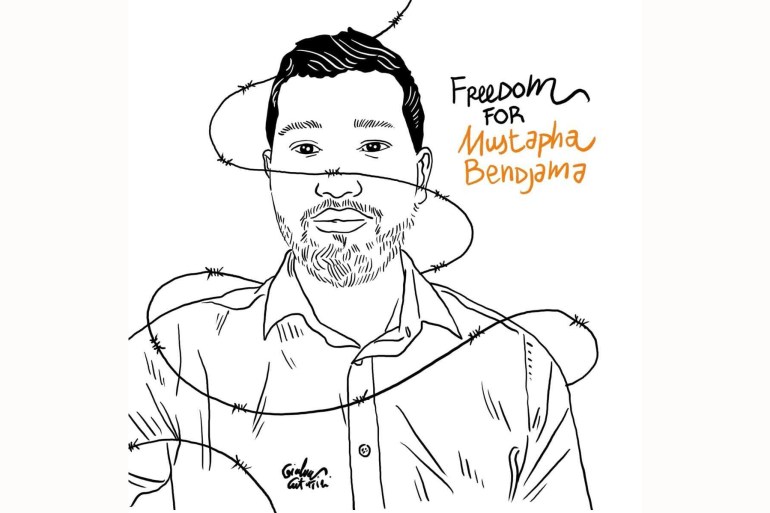Since February 2019, Mustapha Bendjama, the editor of the daily newspaper Le Provincial, has been held by police forces and interrogated at least 35 times.
In his hometown of Annaba in eastern Algeria, he has been under constant pressure from authorities due to what his allies say are his consistent challenges to government policies.
In February, he was arrested at the newspaper’s headquarters in Annaba in connection with the escape of a noted dissident to France through Annaba and Tunisia, despite a ban on them leaving the country.
Wider context
Bendjama’s case is far from unique. Each day, the National Committee for the Liberation of Detainees (CNLD) – created in 2019 to monitor politically motivated detentions – announces new arrests, trials, releases and judicial procedures.
There are so many that some prisoners end up lost within the system while others are so afraid that they and their families refuse to publicise their cases for fear of reprisals.
According to human rights activist Zaki Hannache, there are currently 228 prisoners of conscience in Algeria, most of whom have been charged with “terrorism”.
At least 1,200 people have been jailed since 2019 in connection with participation in the Hirak, Algeria’s nationwide pro-democracy protest movement, or because of criticism posted online, he said.
Many have been brought in for regular questioning and dozens have been repeatedly imprisoned.
Countrywide, local media also have experienced intense repression, with 17 journalists sent to prison, including the editor of Radio M and Maghreb Emergent, Ihsane El Kadi, who is currently behind bars.
Thwarted justice
After 10 days in custody, during which he said he had been physically mistreated under interrogation, Bendjama was charged in two separate cases.
In one, he was charged – along with Algerian researcher Raouf Farrah – with receiving foreign funding to commit acts against public order, as well as sharing classified information, and sentenced in August to two years in prison.
In November, he was given a six-month sentence in another case for “participating in illegal emigration” for allegedly contributing to the escape of opposition figure Dr Amira Bouraoui, who had been banned from leaving Algeria while waiting for her appeal against numerous convictions.
Both Bendjama and Farrah had their initial sentence reduced, and Farrah was…

